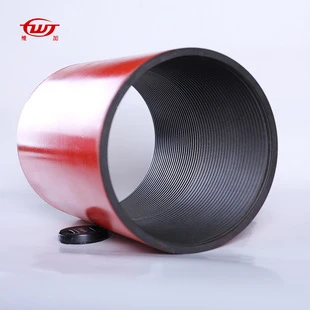- Afrikaans
- Albanian
- Amharic
- Arabic
- Armenian
- Azerbaijani
- Basque
- Belarusian
- Bengali
- Bosnian
- Bulgarian
- Catalan
- Cebuano
- Corsican
- Croatian
- Czech
- Danish
- Dutch
- English
- Esperanto
- Estonian
- Finnish
- French
- Frisian
- Galician
- Georgian
- German
- Greek
- Gujarati
- Haitian Creole
- hausa
- hawaiian
- Hebrew
- Hindi
- Miao
- Hungarian
- Icelandic
- igbo
- Indonesian
- irish
- Italian
- Japanese
- Javanese
- Kannada
- kazakh
- Khmer
- Rwandese
- Korean
- Kurdish
- Kyrgyz
- Lao
- Latin
- Latvian
- Lithuanian
- Luxembourgish
- Macedonian
- Malgashi
- Malay
- Malayalam
- Maltese
- Maori
- Marathi
- Mongolian
- Myanmar
- Nepali
- Norwegian
- Norwegian
- Occitan
- Pashto
- Persian
- Polish
- Portuguese
- Punjabi
- Romanian
- Russian
- Samoan
- Scottish Gaelic
- Serbian
- Sesotho
- Shona
- Sindhi
- Sinhala
- Slovak
- Slovenian
- Somali
- Spanish
- Sundanese
- Swahili
- Swedish
- Tagalog
- Tajik
- Tamil
- Tatar
- Telugu
- Thai
- Turkish
- Turkmen
- Ukrainian
- Urdu
- Uighur
- Uzbek
- Vietnamese
- Welsh
- Bantu
- Yiddish
- Yoruba
- Zulu
jan . 15, 2025 05:19
Back to list
Caing Coupling
Casing collars play a critical role in the oil and gas industry, particularly in well construction and maintenance. These components are situated at joints between casing sections and provide structural integrity essential for deep drilling operations. The effectiveness of casing collars can significantly impact the operational success of drilling projects.
The calibration and inspection of casing collars are paramount for ensuring precision in their alignment and fit. Technicians employ non-destructive testing methods such as ultrasonic testing and magnetic particle inspection to detect any potential defects in welds or metal composition. Regular field audits ensure that every casing collar complies with industry standards such as those established by the American Petroleum Institute (API). Authoritative insights into casing collars necessitate a comprehensive understanding of their role in wellbore architecture. Each component must adhere strictly to the specifications to synchronize with other segments of the casing process. Deviations in collar performance can lead to catastrophic failure, risking environmental safety and incurring significant financial costs for remediation activities. Furthermore, companies investing in rigorous research and development innovate by introducing features like self-latching mechanisms and pressure-lock systems that augment the traditional functionalities of collars. These innovations not only streamline wellhead operations but also boost the reliability quotient, a crucial parameter for stakeholder trust and funding approvals in high-value energy projects. Conclusively, the seamless integration of comprehensive engineering, cutting-edge material science, and meticulous quality control fortifies the reliability of casing collars as a pivotal element of modern drilling operations. My professional recommendation is to prioritize high-quality and innovative casing collars, as they form the backbone of efficient, safe, and cost-effective resource extraction processes. In the highly competitive landscape of energy resources, a reliable casing collar system is indispensable for achieving operational excellence and securing a competitive edge.


The calibration and inspection of casing collars are paramount for ensuring precision in their alignment and fit. Technicians employ non-destructive testing methods such as ultrasonic testing and magnetic particle inspection to detect any potential defects in welds or metal composition. Regular field audits ensure that every casing collar complies with industry standards such as those established by the American Petroleum Institute (API). Authoritative insights into casing collars necessitate a comprehensive understanding of their role in wellbore architecture. Each component must adhere strictly to the specifications to synchronize with other segments of the casing process. Deviations in collar performance can lead to catastrophic failure, risking environmental safety and incurring significant financial costs for remediation activities. Furthermore, companies investing in rigorous research and development innovate by introducing features like self-latching mechanisms and pressure-lock systems that augment the traditional functionalities of collars. These innovations not only streamline wellhead operations but also boost the reliability quotient, a crucial parameter for stakeholder trust and funding approvals in high-value energy projects. Conclusively, the seamless integration of comprehensive engineering, cutting-edge material science, and meticulous quality control fortifies the reliability of casing collars as a pivotal element of modern drilling operations. My professional recommendation is to prioritize high-quality and innovative casing collars, as they form the backbone of efficient, safe, and cost-effective resource extraction processes. In the highly competitive landscape of energy resources, a reliable casing collar system is indispensable for achieving operational excellence and securing a competitive edge.
Next:
Latest news
-
Tubing Pup Joints: Essential Components for Oil and Gas OperationsNewsJul.10,2025
-
Pup Joints: Essential Components for Reliable Drilling OperationsNewsJul.10,2025
-
Pipe Couplings: Connecting Your World EfficientlyNewsJul.10,2025
-
Mastering Oilfield Operations with Quality Tubing and CasingNewsJul.10,2025
-
High-Quality Casing Couplings for Every NeedNewsJul.10,2025
-
Boost Your Drilling Efficiency with Premium Crossover Tools & Seating NipplesNewsJul.10,2025
Related Products







